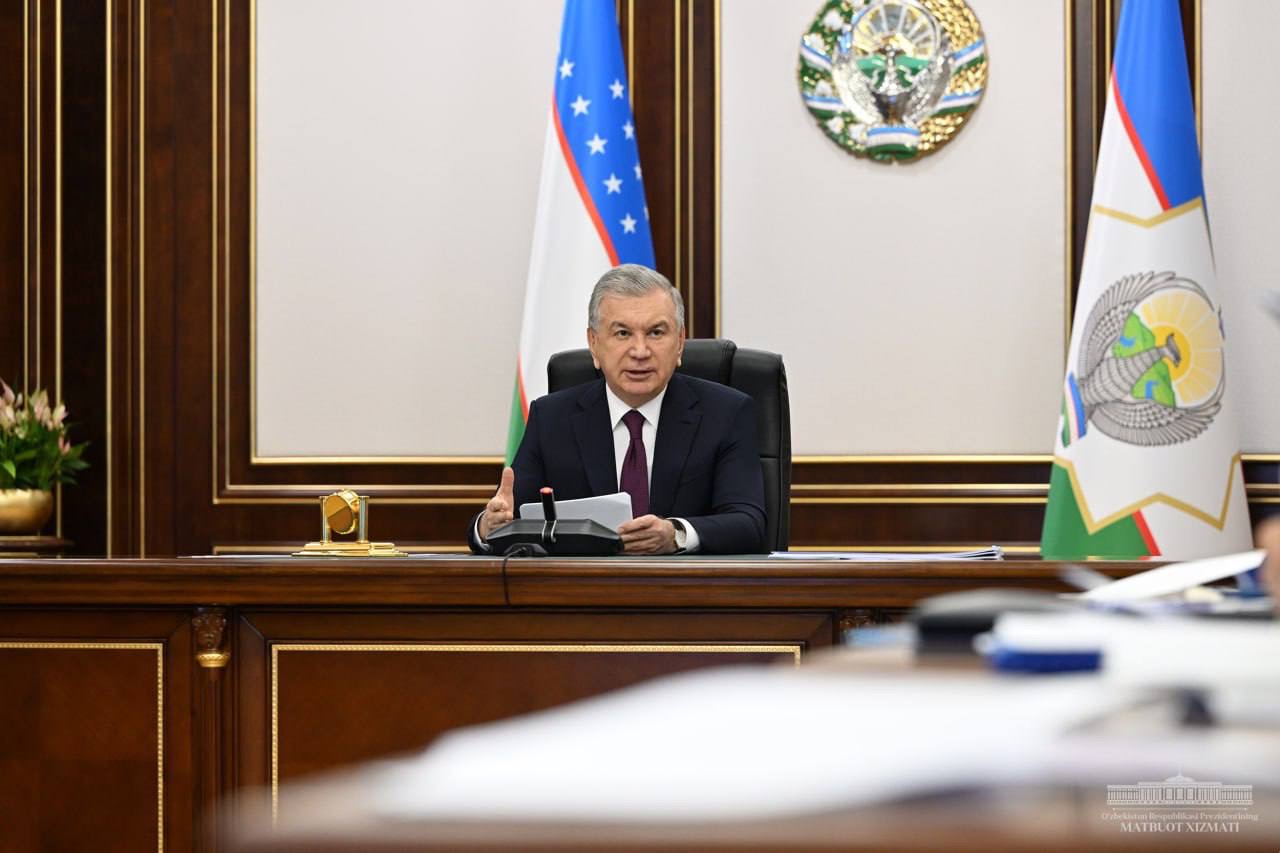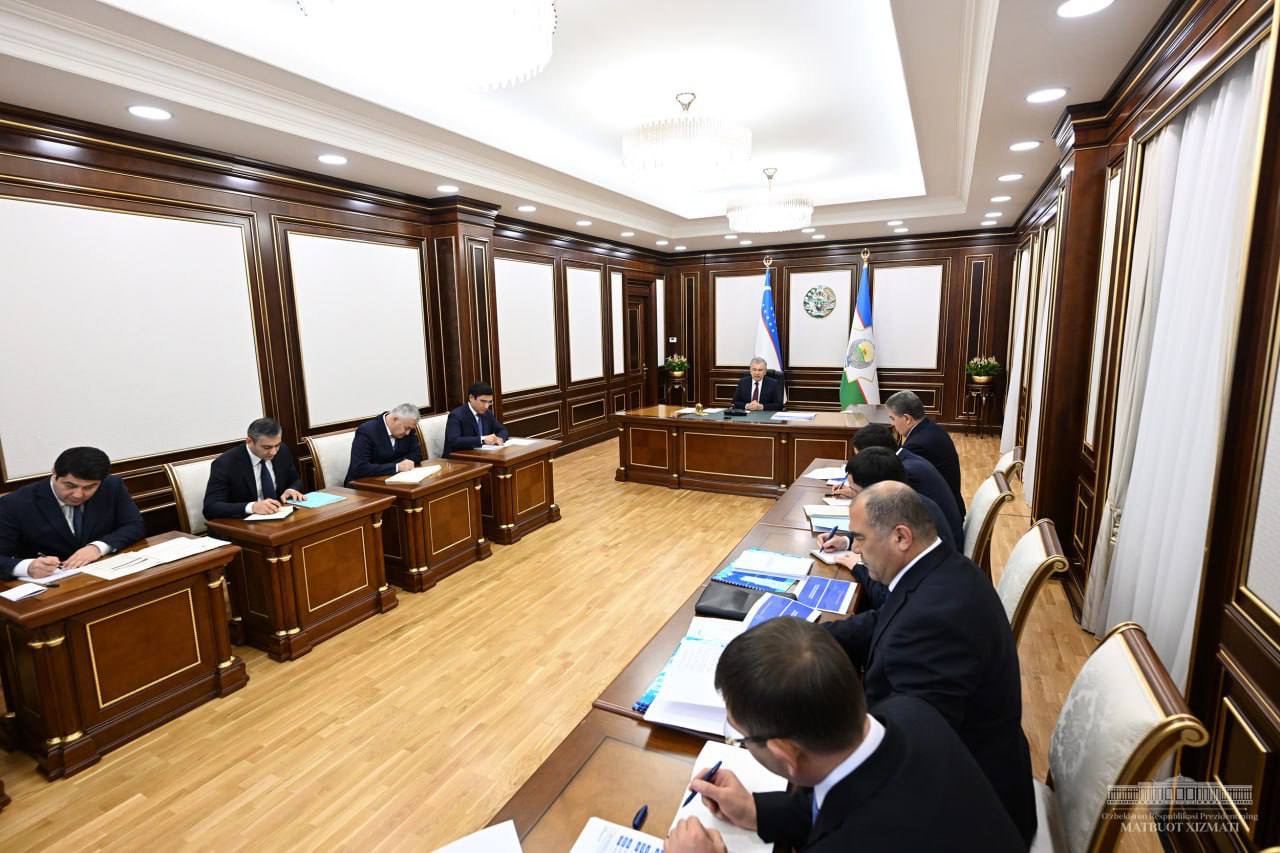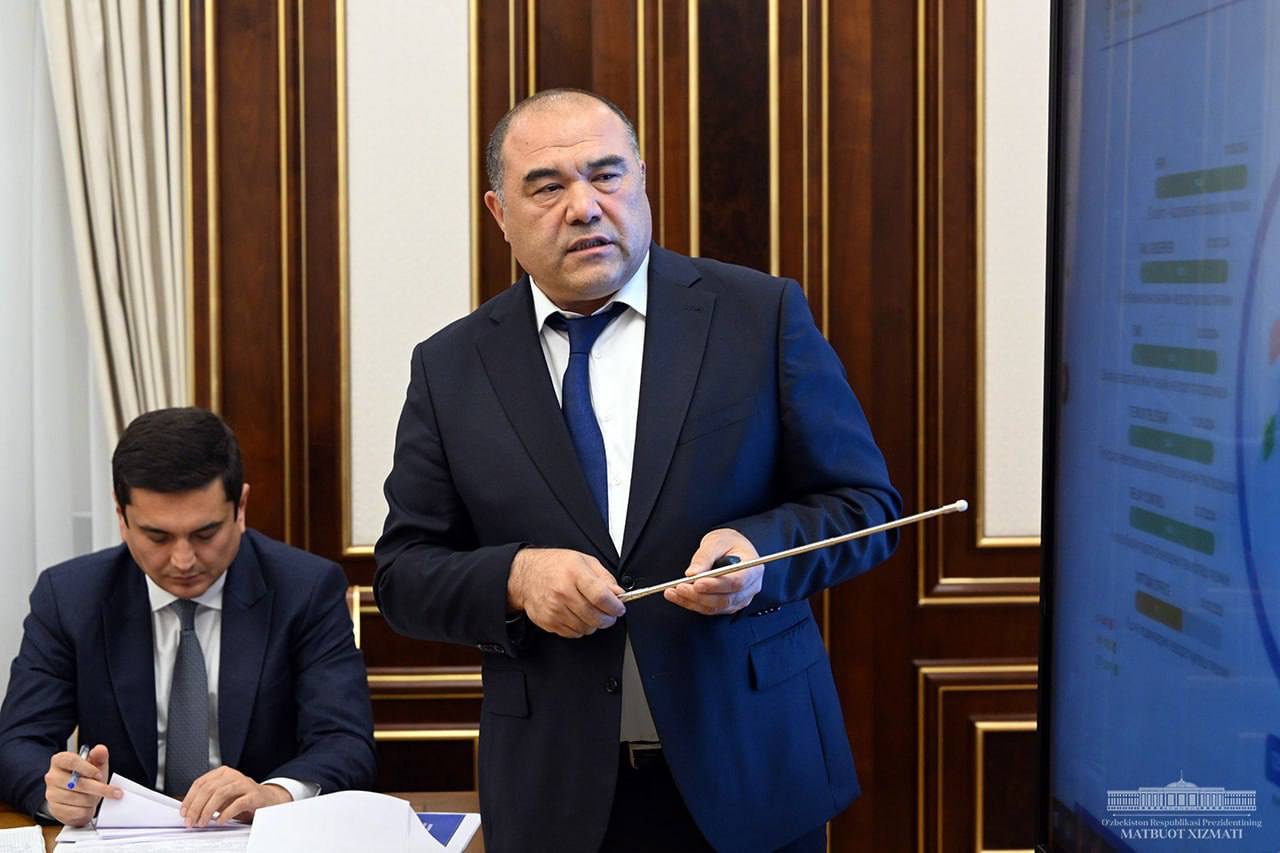On November 26, President Shavkat Mirziyoyev was presented with an update on the ongoing transformation processes in Uzbekistan’s railway and aviation sectors. These reforms, aimed at boosting economic efficiency and enhancing public convenience, are making strides in modernizing transport services.

The transformation in the railway sector has seen the establishment of six independent enterprises within the "Uzbekistan Railways." The introduction of 1,200 new cargo wagons has resulted in a remarkable reduction of transport times—cutting the duration of domestic cargo transport by half.
Thanks to digitalization, the process of ordering a cargo car has been streamlined from seven steps to just three, reducing the time needed from 72 hours to only 12 hours. Furthermore, the capacity for trains to pass around Tashkent has increased by 30%. These improvements have turned the previously loss-making railway company into a profitable entity, with an expected profit of UZS 30bn ($2.3mn) this year.
The aviation sector has also experienced notable growth. "Uzbekistan Airways" has expanded its air traffic by 25%, with domestic flights increasing by 2.5 times. The airline now accounts for 20% of Central Asia’s international air traffic, and annual passenger numbers are projected to exceed 6mn.
The growth is supported by "Uzbekistan Airports," which manages services for planes, passengers, and cargo. The private sector’s involvement in airport management has proven beneficial, with 44 international airlines now flying to Uzbekistan, and cargo transportation through airports expected to rise by 22% this year.

Despite these successes, there remains work to be done. The global situation underscores the importance of transport routes, and President Mirziyoyev emphasized the need to diversify routes, speed up transportation processes, and reduce service costs to stay competitive.
“Economy and trade relations in our country are developing year by year. The income of the population and the tourism potential of the regions are also increasing. By 2030, we aim to raise our GDP to $200bn. Therefore, special attention must be paid to transport ‘arteries’,” said the president.
A new version of the "Railway Transport" law, signed by the President, marks a significant shift in legal and organizational foundations. The law aims to attract private investment and modernize the sector, ensuring the creation of a robust and competitive transport network.
The president stressed that leaders in the industry must transform their operational approaches to ensure meaningful results. This includes accelerating modernization projects, securing international credit ratings, and effectively utilizing investments without relying on state guarantees.

Additionally, while Uzbekistan’s airways have made progress, they have not yet reached the level of service expected by the population. Delays in obtaining international ratings and entering foreign markets have hindered efforts to reduce ticket prices and improve services.
To address this, a consulting company has been tasked with developing a comprehensive "roadmap" for transformation, focusing on cost-cutting measures and service improvement.
The success of private sector involvement is evident in the Samarkand airport, which, after being placed under private management, saw a fivefold increase in flights and passenger traffic. Now, similar goals are set for the airports in Namangan, Andijan, Bukhara, and Urganch. By the end of the year, the aim is to double the number of additional services at these airports, boosting income by 25%.
Plans are also in place to fully utilize the Navoi airport terminal and attract international investments. The president has instructed industry leaders to fast-track digitalization, revise existing plans, and improve the economic efficiency of these companies.
Follow Daryo's official Instagram and Twitter pages to keep current on world news.
Comments (0)